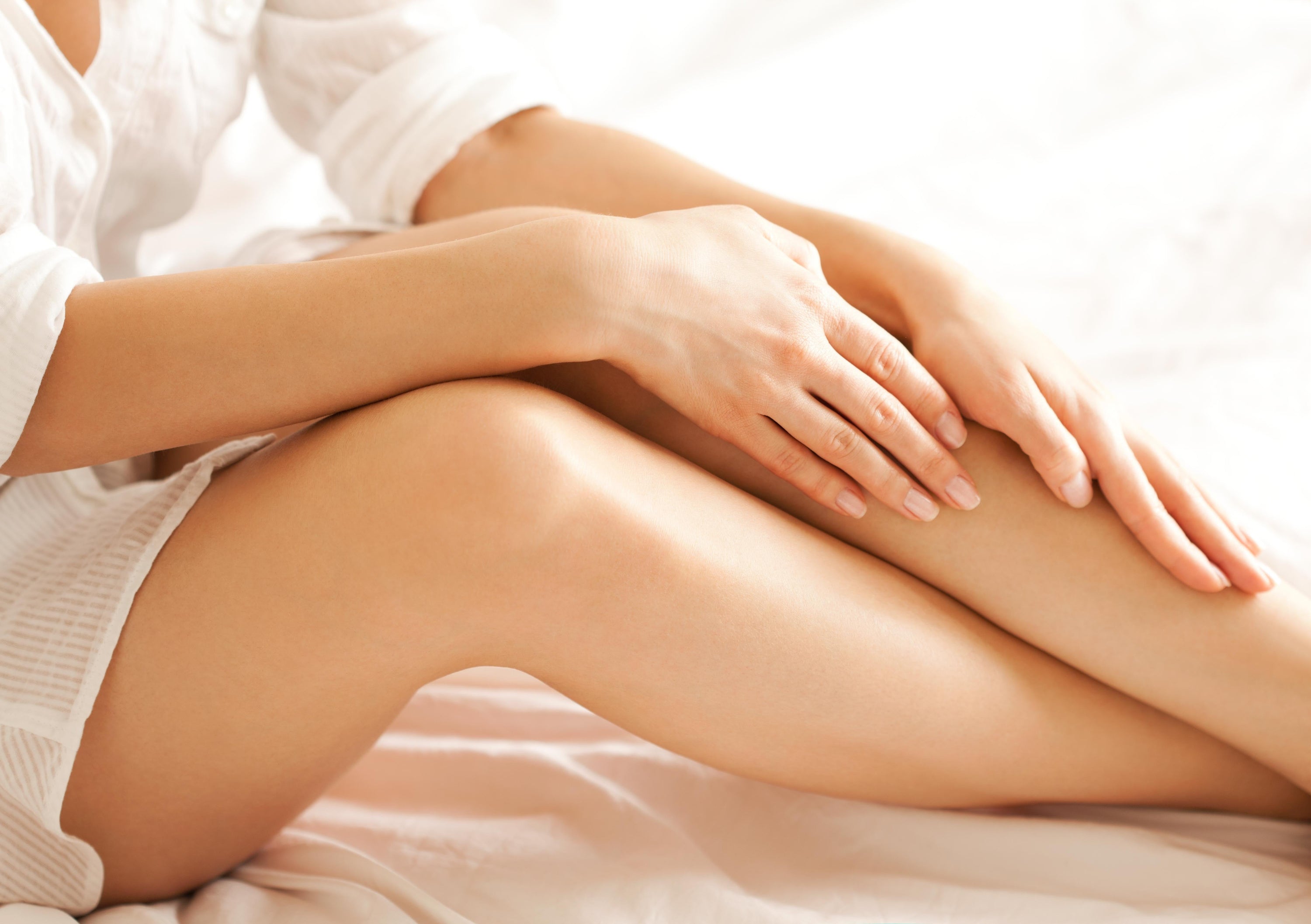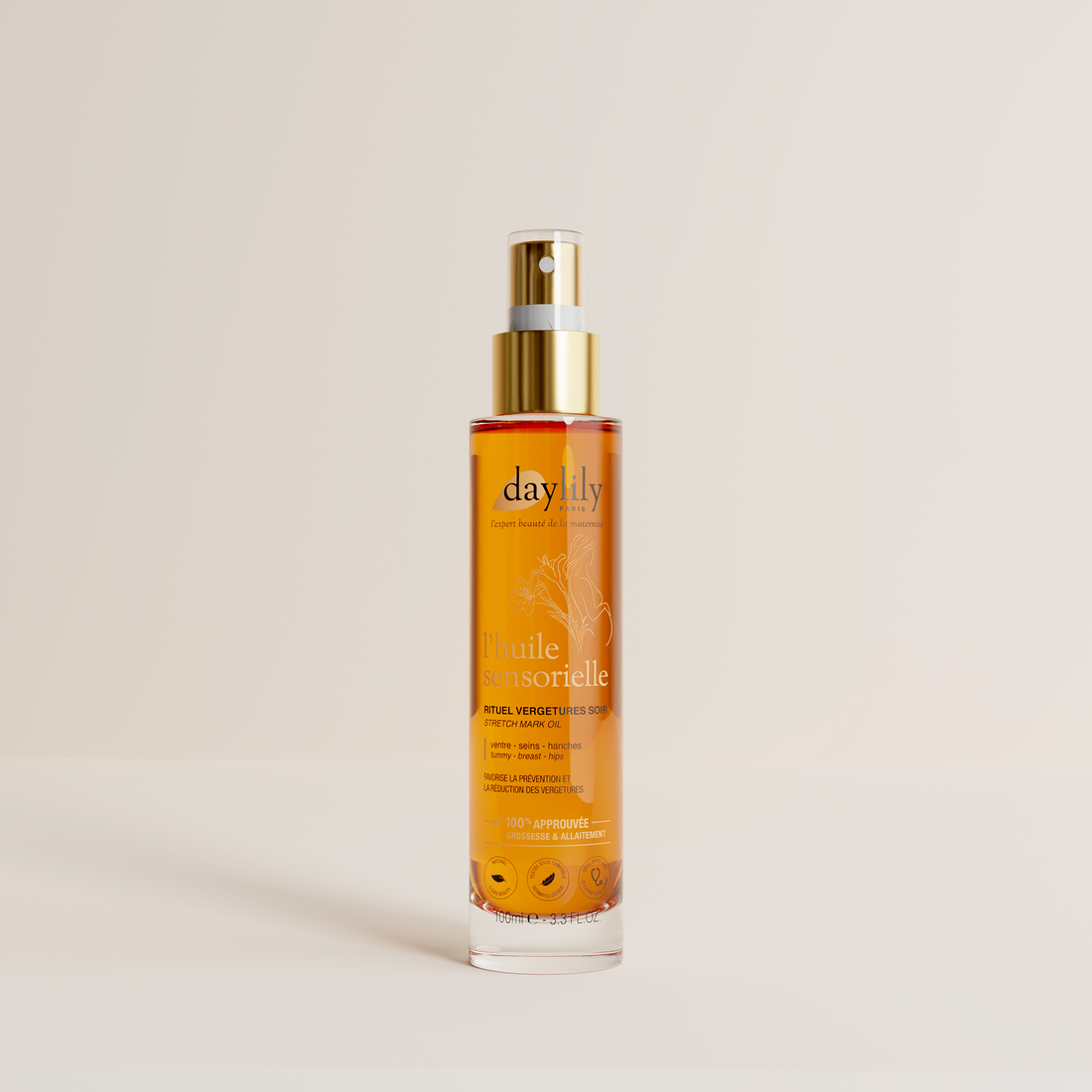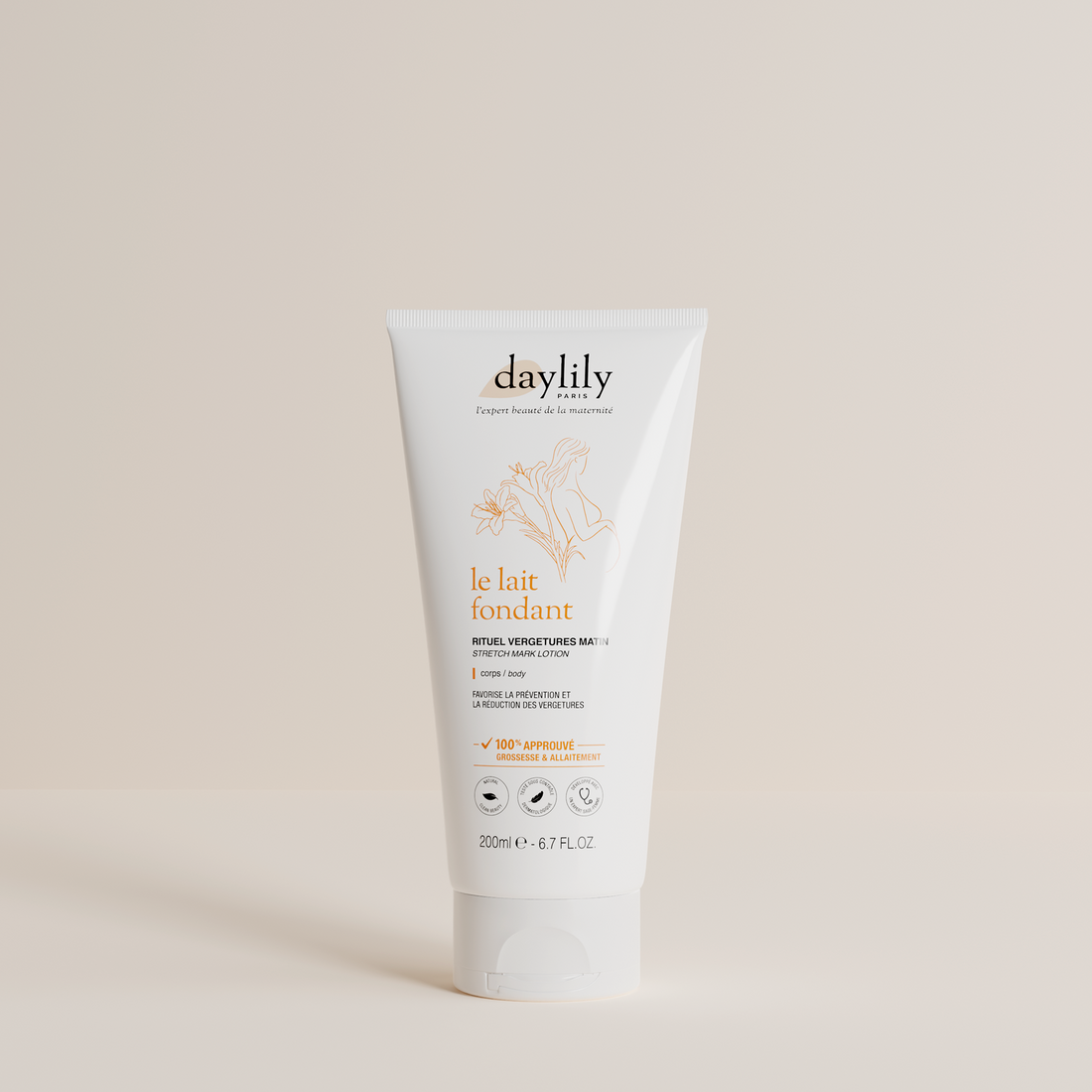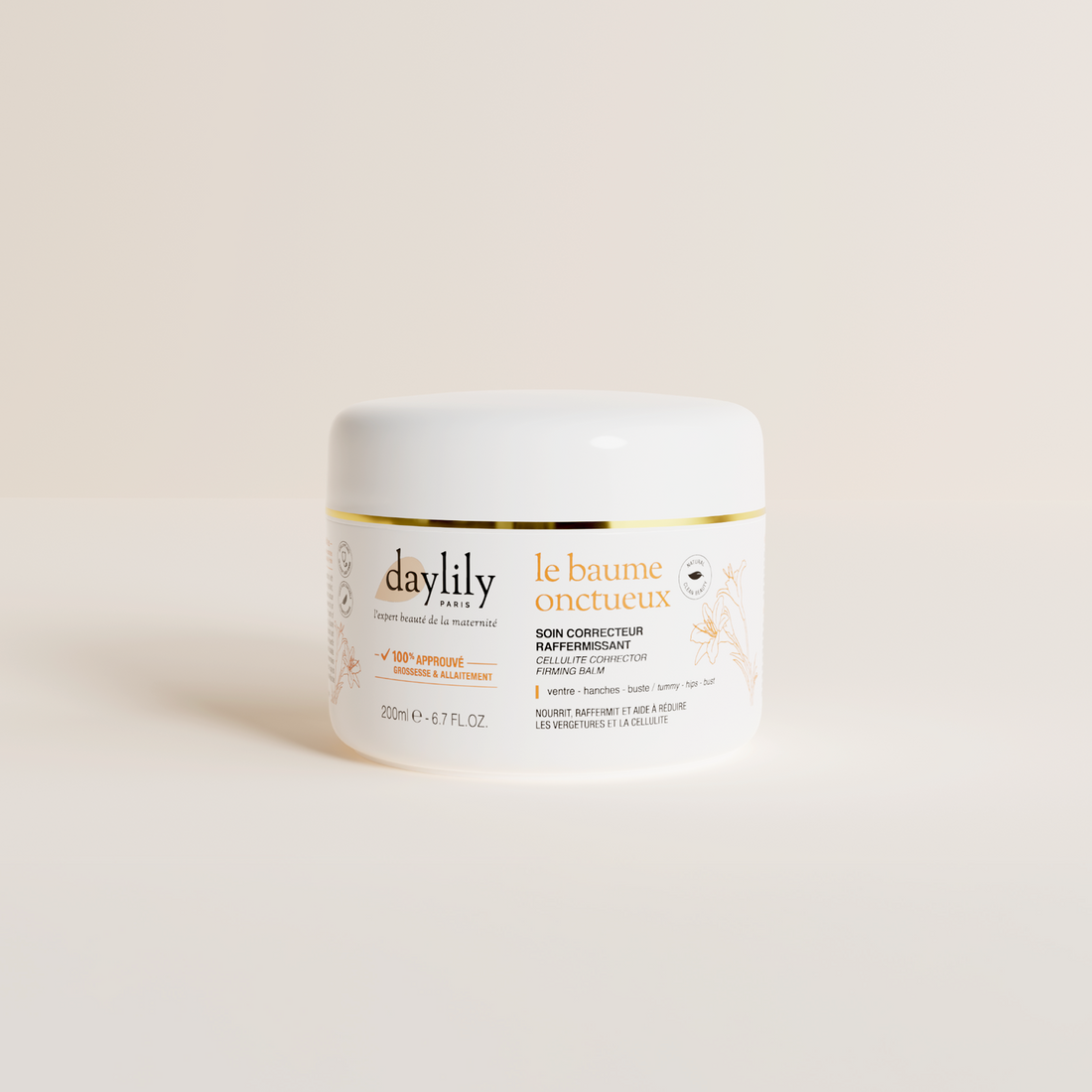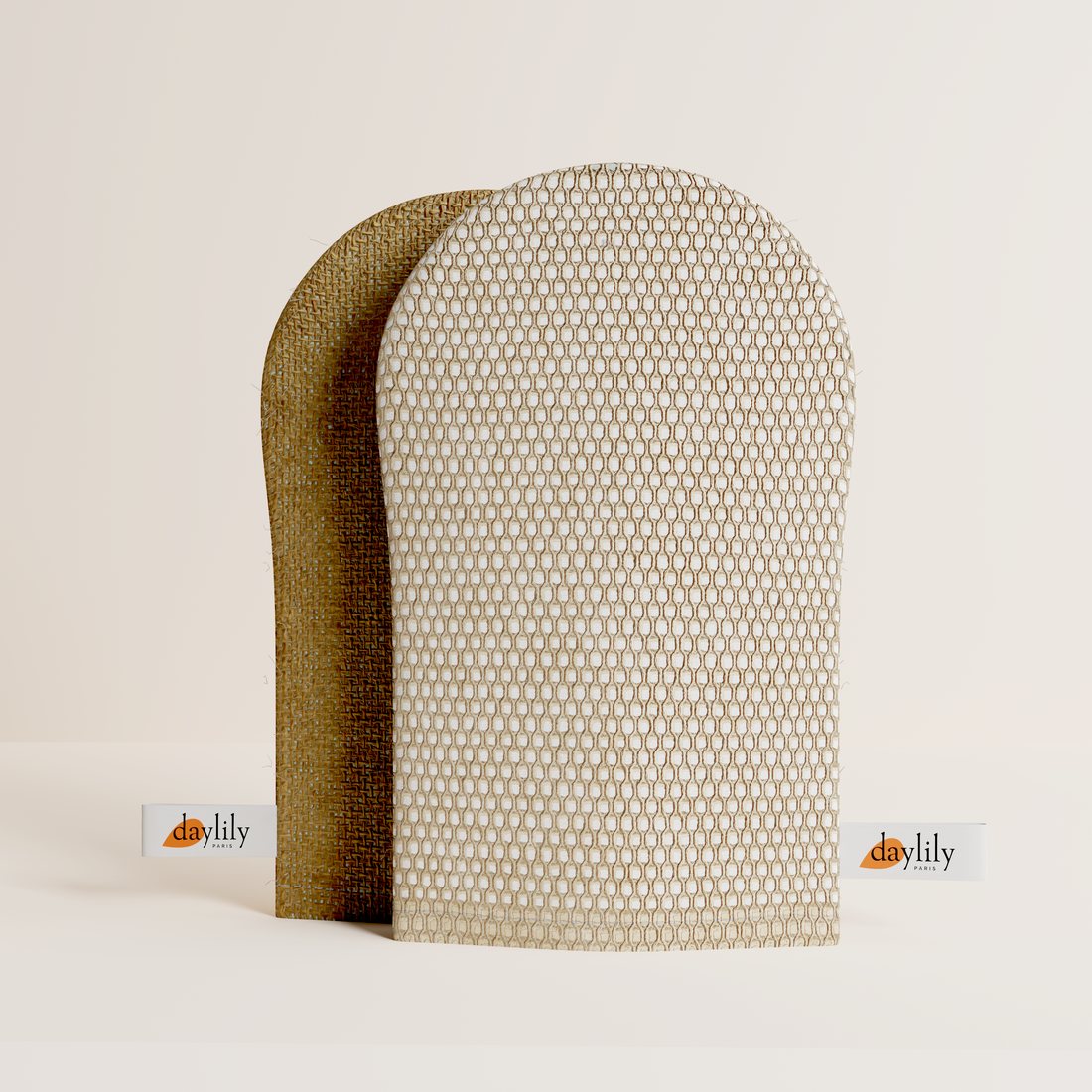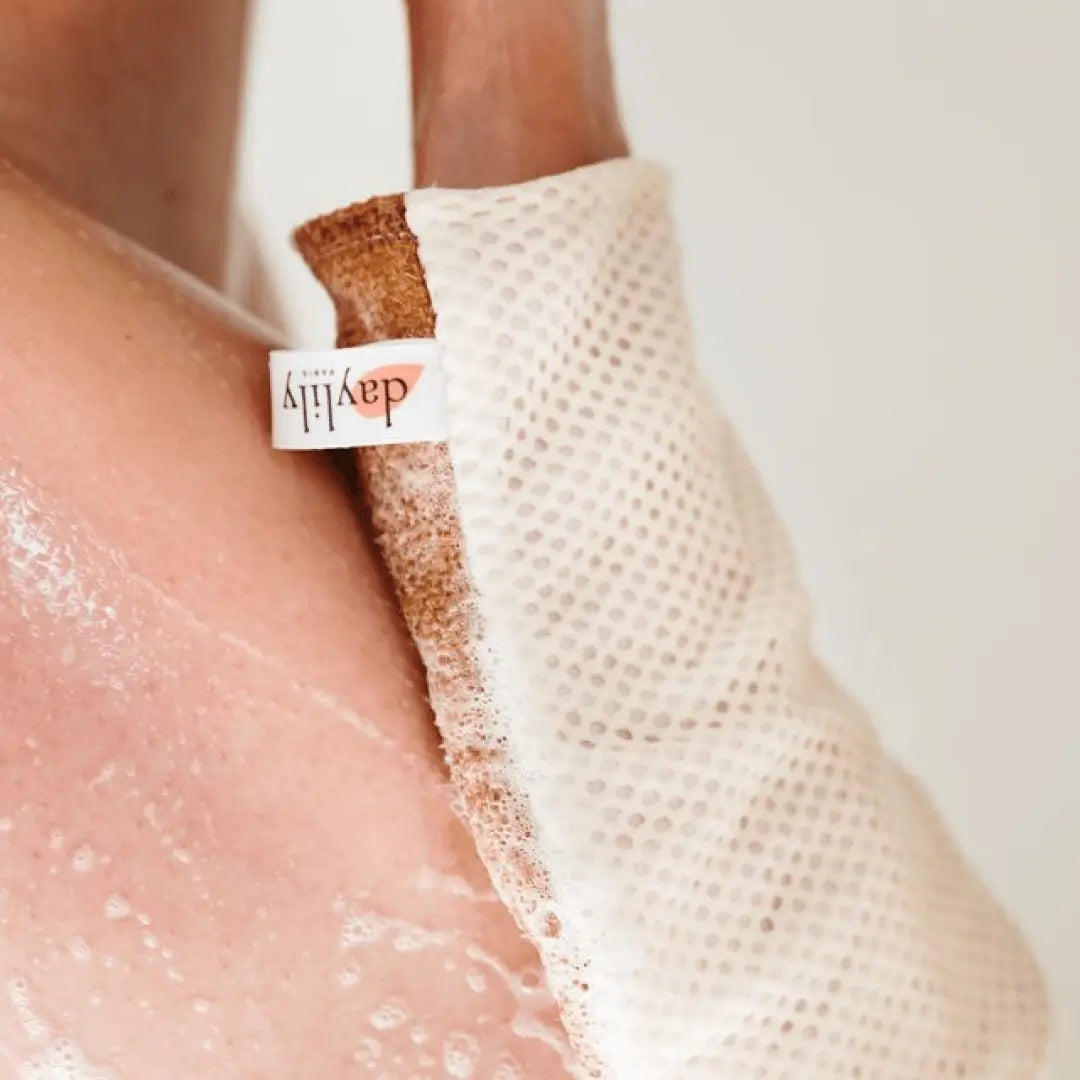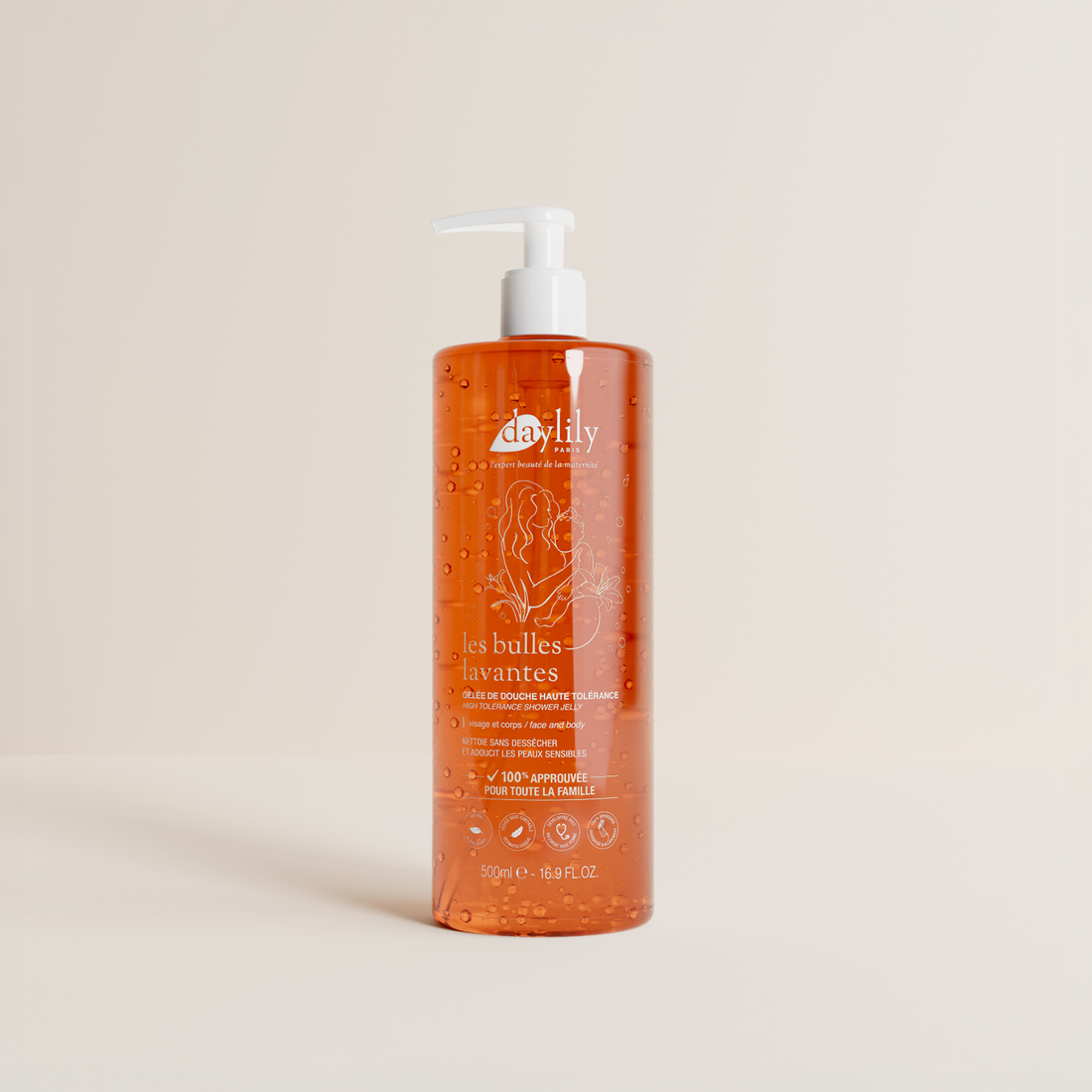Daylily Paris is a brand of clean, sensory and effective skincare products, made in France and 100% compatible with pregnancy and breastfeeding. We are also committed to sharing quality information for informed and uninhibited motherhood. 🧡
- Heavy legs and pregnancy: the causes
- Heavy legs and pregnancy: what to do?
- The right beauty gestures to adopt to put an end to heavy legs
- Heavy legs and pregnancy: what if the problem gets worse?
Heavy legs and pregnancy: the causes
Several combined phenomena explain this feeling of heavy legs.
First accused: hormones , always them! The increase in estrogen and progesterone levels reduces the tone of blood vessels and promotes the appearance of edema.
Added to this is a significant weight gain: your uterus grows, and compresses the vena cava , this large vein located on the right side of the body which is responsible for bringing blood from the lower limbs to the heart. Venous return occurs less well than normal, blood tends to stagnate and accumulate in the lower limbs, and that is when the feeling of heavy legs appears!
All pregnant women can potentially be affected, but a number of factors can predispose you to venous insufficiency.
Family history, being overweight at the base, the number of pregnancies, and a sedentary lifestyle (if you work static, standing, or sitting in front of a computer) are all elements that work against you.
Finally, heat amplifies poor venous return, so be careful if you are pregnant during the summer, or during a heatwave.
Bad news: the feeling of heavy legs gets worse as your belly grows, and generally increases until the end of your pregnancy.
If you can't do anything about hormonal upheaval and heredity, you can nevertheless lighten your legs during your pregnancy by adopting a few simple daily actions.
Heavy legs and pregnancy: what to do?
As you will have understood, heavy legs are directly linked to poor blood circulation . Therefore, you should do everything in your power to activate this somewhat lazy blood return!
- First of all, do not hesitate to walk as much as possible , ideally 30 minutes a day – particularly if you carry out a “static” professional activity: sitting or standing, without moving. Uncross your legs , take a regular break and take a few steps to stretch yourself, get off the bus one stop earlier, go for a short walk during your lunch break... This will activate your blood circulation, and also keep you in great shape!
- If nothing stands in the way, you can also practice moderate-intensity physical activity : swimming, for example, is a very good choice!
- Raise your legs as often as possible to pump blood up to your upper body. In front of the TV, in your bed, do not hesitate to elevate your legs using a cushion to encourage venous return, or to raise the feet of your bed by about ten centimeters . The radical method? Lie on your back, and put your legs against the wall, vertically, to let all the blood go down!
- Avoid tight clothing, shoes that are too high or have straps that obstruct the veins in the foot. Heels that are too flat should also be avoided. The right heel height? Two centimeters!
- Compression stockings can really provide relief and reduce swelling. They are also reimbursed upon presentation of a prescription. Remember to ask your midwife or gynecologist!
- Pay particular attention to the contents of your plate and give pride of place to fiber (fruits, vegetables) and venotonic foods (which strengthen the veins). We can cite, for example, purple-colored fruits and vegetables (eggplant, black grapes, figs, red cabbage, etc.)
- Drink a lot : good hydration helps thin the blood, and therefore helps it circulate better. Herbal teas designed to boost circulation are particularly interesting for killing two birds with one stone: they are generally based on red vine, blueberry, nettle, orange, blackcurrant, etc.
The right beauty gestures to adopt to put an end to heavy legs

Lightening your heavy legs also requires simple actions to adopt in your bathroom!
Generally speaking, avoid too hot water during the shower, especially for prolonged periods, because this “sauna” effect will dilate the veins and worsen venous insufficiency.
Finish your shower with a jet of cold water on your thighs, calves and ankles for about 30 seconds. You can also give your feet a bath of cold water in a basin every evening to relieve pain and reduce swelling.
To put an end to heavy legs, don't forget to massage them! And yes, you can activate your blood circulation manually, by massaging your lower body: for maximum effectiveness, start from the bottom (feet) and make long vertical movements going up towards the thighs, to bring the blood back to the top of the body. You can also perform massages with Le Gant Sublimateur , which will exfoliate your skin at the same time. It will help improve blood circulation and cell renewal, providing better effectiveness of care! It is ideally used in the shower with the help of Les Bulles Lavantes.
To do this, opt for an oil that will accompany the gliding movement and allow a long massage, like our Sensory Oil for example. It can be used all over the body, and will also prove to be a valuable ally in your fight against stretch marks !
Because your belly can be a little bulky at this stage, don't hesitate to get the future dad involved !
There are also beauty products specially designed to reduce the feeling of heavy legs, such as “cold effect” treatments which activate circulation. Remember to check before application if this type of product can be used during pregnancy and does not contain ingredients harmful to your baby.
Heavy legs and pregnancy: what if the problem gets worse?
The closer you get to the term, the more heavy legs should, unfortunately, become part of your daily life. There is no need to worry, because this phenomenon, although unpleasant, remains benign.
However, if you notice intense pain in the calf when lifting your foot, the appearance of fever, or a feeling of heat in the leg , it is better to consult without delay because these symptoms can hide a more serious pathology such as thrombosis or phlebitis, which can be dangerous during pregnancy.
If you suffer from venous insufficiency and heavy legs during your pregnancy, these few tips should help you wait until the baby arrives.
We reassure you: this blood circulation problem should disappear on its own after childbirth , to let you enjoy your baby in complete peace of mind!

